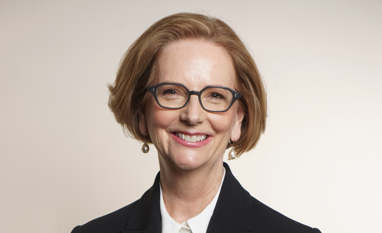It is time to “name and shame” firms that are failing to close their gender pay gap, according to former Australian prime minister and chair of the Global Institute for Women’s Leadership at King’s College London (GIWL KCL) Julia Gillard.
Gillard also advocated “naming and celebrating” businesses that are getting gender pay right, as she spoke to Ann Francke, CEO of the Chartered Management Institute (CMI), for the organisation’s video series The Leading Issue.
Gillard’s comments echo findings in two research reports from GIWL KCL, (in March 2023 and October 2021) which identified best practice for gender pay gap reporting.
Her conclusion from the research is that when businesses are required to publish their gender pay gap they should also disclose “what they are doing to make a difference to that gender pay gap” within their organisations. Reporting on “progress against that plan” brings an “action component”, she added.
134 year wait
According to the latest ONS data, the UK gender pay gap was 7.7 percent among full time employees, and 14.3 percent among all employees.
The World Economic Forum’s latest Global Gender Gap Report found that it will take 134 years to reach full parity. Gillard said “that is far too long to wait”, adding that while progress has been made in areas such as politics, business, or “how women are portrayed in the media”, the rate of progress is far too slow.
A recent CMI poll found that the majority of managers in the UK say their organisation does not use gender pay gap data to make positive changes. Less than a fifth (17 percent) said their employer takes appropriate action to close income inequality gaps.
Male allies
Gillard also said polling research conducted by Ipsos in partnership with GIWL KCL showed a growing “negative attitude” towards equality among younger men.
“Younger men are tending to be more conservative, to believe gender equality has gone too far,” she said.
Further CMI research found that a third of male managers (31 percent) think too much effort is going into ensuring workplace gender balance is achieved, compared to 11 percent of female respondents.
‘Say-do-gap’
Gillard pointed to a number of reasons there are fewer women in senior positions. She flagged up employers that do not support positive returns to work for women who have taken time off for parenting leave, skewed definitions of merit, and a lack of work-life balance where presenteeism and being in the office for long hours is rewarded.
Managers told a CMI survey that the most important thing an organisation can do to support staff with childcare was to offer flexible working policies. CMI found that employees rated flexible working higher than all other employee benefits, including salary.
Francke said: “As Julia rightly points out, we need to interrogate the concrete action organisations are taking. Reporting alone won’t address crucial questions around what barriers are stopping women from pursuing leadership roles in a company. We need to shift from talking to acting if we are to move on from this enduring ‘say-do-gap’ that CMI keeps highlighting.
“Closing the gender pay gap isn’t just a matter of fairness – it’s a critical step toward ensuring that hard work is recognised and rewarded equally and, moreover, that employers are taking full advantage of all of the available talent out there. Done right, it makes business sense and delivers equality of opportunity.”
Legislative change
Employers are waiting to see what the UK government will do to improve gender pay equality given the now chancellor Rachel Reeves’ pre-election pledge to close gender pay gap “once and for all”.
Legislative changes are already underway in the EU as its member countries are required to transpose the EU pay transparency directive into national legislation by June 2026. The directive aims to combat pay discrimination and help close the gender pay gap in the EU, which stood at 12.7 percent across the group in 2022.
For more information on the EU directive and how to get on the front foot with pay transparency read our in-depth feature with reward expert Sally Purbrick, senior reward and HR specialist and former Anglian Water Services head of reward.
- You can hear more from Sally Purbrick on the topic of evolving pay transparency as she is speaking at the Benefits Expert Summit 26-27 November.
- To attend the event, visit the Benefits Expert Summit website to register.












